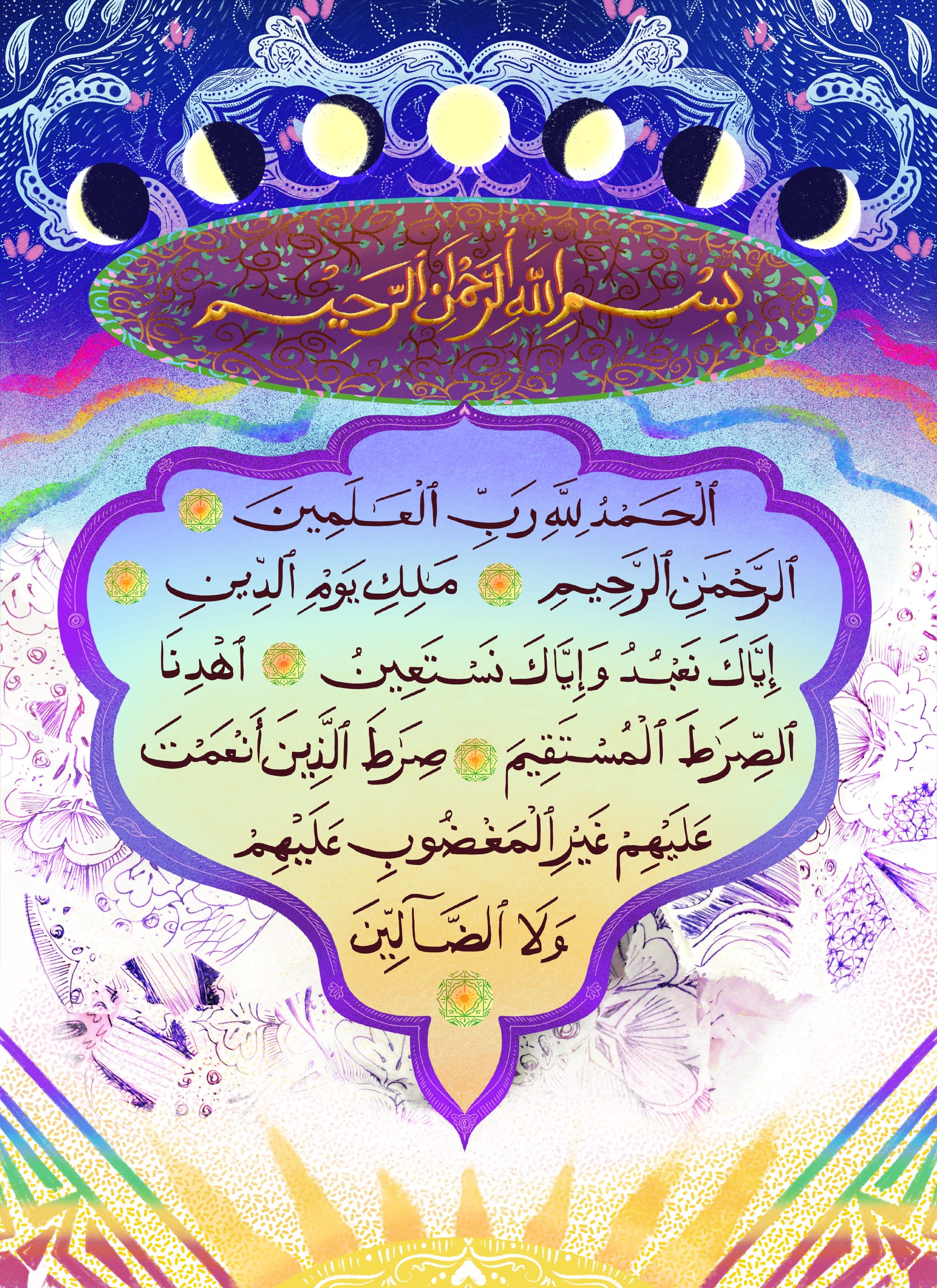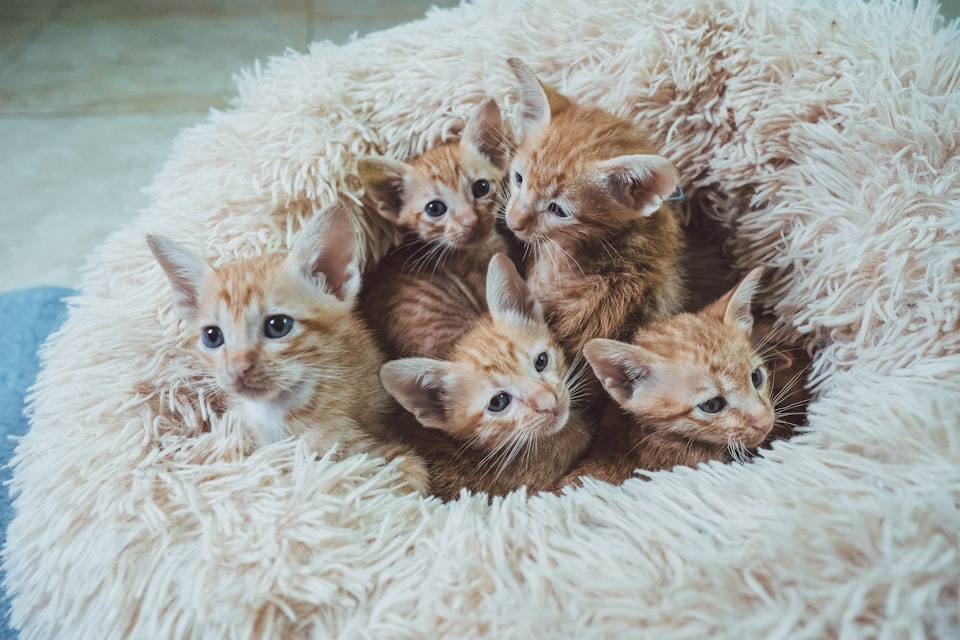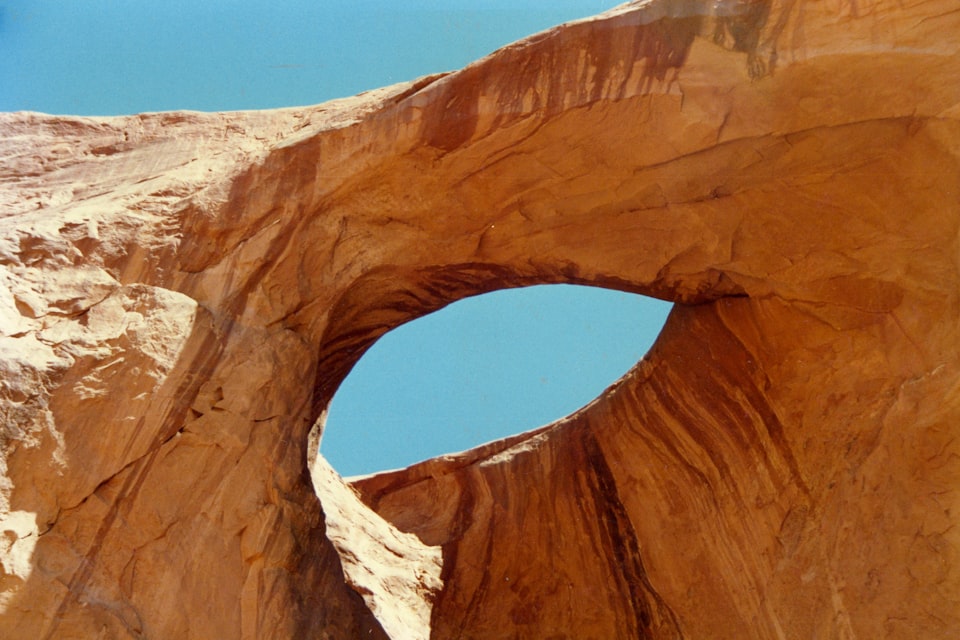Experiences of Divine Love (The Signs In Ourselves, Part 6 of 12)
Some say they experienced Divine love in their own journeys in specific interventions such as in dreams and people. But some pushed back on this question altogether, reframed it, and shared a broader and more perpetual experience of Divine love instead.
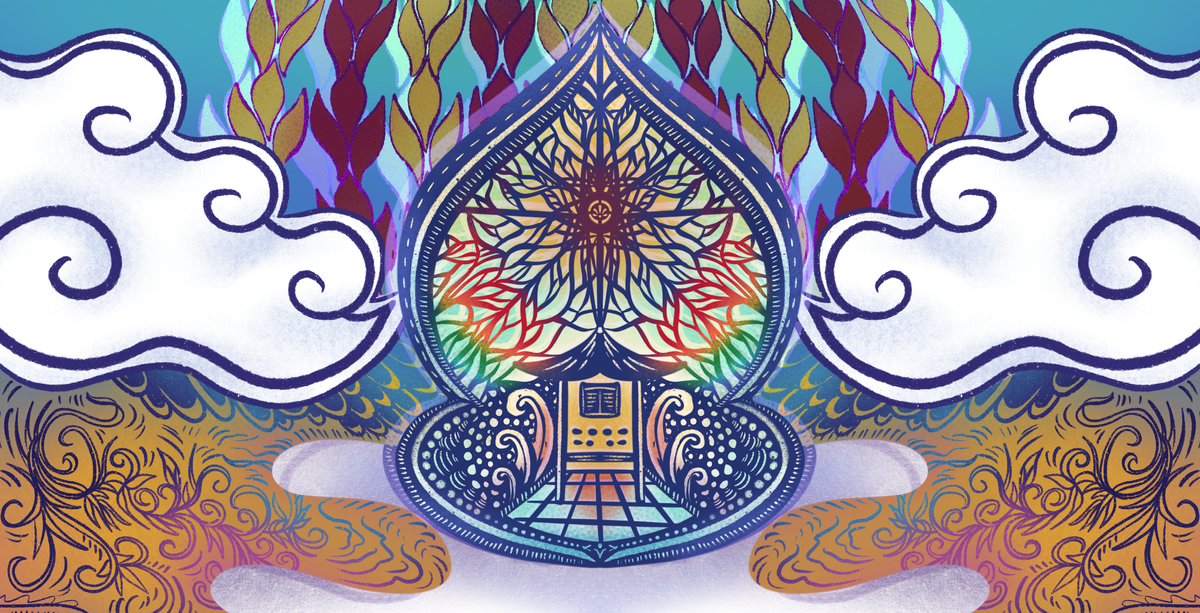
In conversation, some say they experienced Divine love in their own journeys in specific interventions such as in dreams and people. But some of us pushed back on this question altogether, reframed it, and instead shared a broader and more perpetual experience of Divine love. When reflecting on the past, an awareness and continuous appreciation of the Divine helped many of us in developing resilience and acceptance. All these different stories were answers to one question— you can answer it too in Exercise 5.
- Vivid and unforgettable dreams
- Loving relationships as a way of accessing Divine Love
- A more perpetual experience of Divine Love
- Exercise 5


Q. Was there a moment or memory where you felt, saw, or experienced God's love for you in your own journey?
Maybe it could’ve even been a person whose very existence in your life felt like a confirmation of a Divine Source and Their attention to you. What changed after that experience?
VIVID AND UNFORGETTABLE DREAMS
At the worst point of his depression, a teenage atheist in Singapore was sent a dream that he believes saved his life.
“I was 18. I had survived 2 suicide attempts. At my worst depressive period, I had a dream where I had a birds-eye view over a desert, and I saw a black cube. I felt a message in my heart that wasn’t in any language I knew. It told me: Lay down your burdens, and face Makkah. Keep in mind I wasn’t a Muslim yet. I only knew Makkah was an important place. So I couldn’t make sense of this dream, and asked a close Muslim friend what she thought it meant. She told me that the Kaabah is the most holy site in Islam, and facing Makkah is what you do when entering prayer. Although I was an atheist, I was considering experimenting with rituals and spirituality, because the depression was just killing me. I had to adopt a different way of looking at life, and change at a deeper level. That must be how this dream came and focused me into one particular direction, which is Islam. I started doing research online. I’m grateful that I didn’t do research by going to a madrasah or the community leaders, or I would have gone the other way I think. But I have a curious mind, and research what I learn thoroughly instead of just taking it for granted. I spent a few years learning and realising that this speaks to me. Many religions have their own systems and bodies of knowledge— what’s so special about Islam? I can’t explain it. But there was something about it that spoke to me and made me feel I belong. The dream was obviously a really big part of that experience. It sparked everything, it saved my life. I'm so grateful. I don't think I would have been alive today without that dream.”
He grew up in a non-religious family. At one point, he didn’t think God existed at all. “I was the kind of atheist who argued with pastors. I was confrontational and angsty. A friend brought me to church once and I argued with the cell group leader. So it was a mindf*** for a lot of people to realise their gay hardcore atheist friend is becoming Muslim! I was also Salafi at first. The easiest way to self-learn is to read the Quran, read the hadith, and basic legalistic approaches to Islam, what you can or cannot do. So I was that kind of Muslim when I started. I think the lack of direction from my depression was an easy void for Salafi leanings to fill in. I wanted to follow along, and I wasn't thinking too much. It really annoyed others though.”
‘Coming out’ as Muslim to others meant adjusting to a set of new social norms. “I never had any moral pressure from my family and friends to be straight. But after I converted to Islam and entered the university’s tight-knit conservative Muslim community, for the first time in my life I thought ‘Okay bye guys, I’m going back into the closet!’ I grew up comfortable with drinking, partying, and touch. Most of my friends were girls. But now I couldn’t even shake their hands, let alone hug them. I had a tough time adjusting at first. I joined the university’s Muslim society in hopes of making things more inclusive. I failed, but I made a few friends!”
Through his community work, he began redefining his faith for himself and finding ways out of compartmentalisation. “I started meeting people with progressive Muslim perspectives, exploring more discourse to break out of the Salafi shell and learn a comprehensive framework incorporating social sciences and philosophy. I went from ‘yeah I'm gay and Muslim, I don't have to mix the two’ to not even seeing them as having to be separate. Even if it's a bit premature of me to say that I have the definitive answer of what it means to be Muslim, at the very least I know that there is nothing about being gay that is anti-Muslim. Sometimes people ask me how I can be a Muslim if I'm gay. At one point I told myself: The signs are clear for me. It would be such a pity for me to ignore them and the truth—this calling I feel inside me— just because I’m gay.”
Above all, his curiousity about God persists. “I sometimes ask my partner how he makes sense of something, since he was born Muslim. He'll say God is bigger than that, God wouldn't be so petty. Now I think God is bigger than Islam. Islam was just my way of finding God. I want an idea of God that isn’t dogmatic, a God that is bigger than just Islam. That's where I am now. I still identify as Muslim and love so much about Islam. Now I’m curious to learn about Muslims in contexts I am unfamiliar with. I would love to meet Muslims in Russia and South Asia. I am yearning to learn from different cultures, but my faith is resolute and present.”
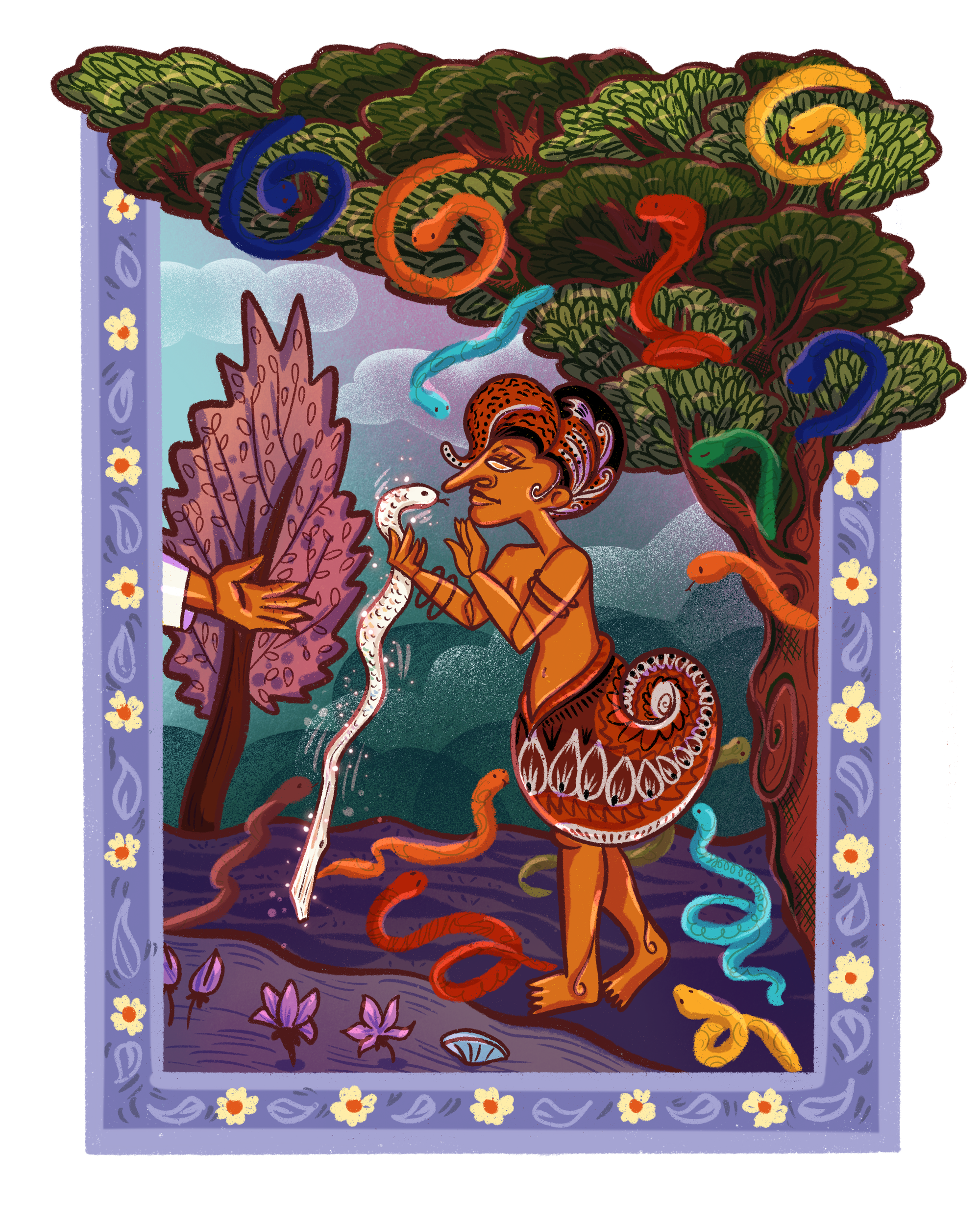
She was born in the 1960s, to a mother who scolded her for even mentioning her teacher was pregnant.
“Any talk of sex was off the table. I loved playing with my brother instead of my sister, and always wanted to wear the same clothes he did. My mother was a religious teacher, an ustazah. Sometimes I would put my head on her lap when she was sewing clothes, and she would tell me stories of the prophets. I liked those. But other than that, most things that came out of her mouth was to tell me something was sinful, this was sinful, that was sinful. To the point where I didn’t even understand what sin meant anymore.”
She loved music as a teenager, and interviewed for the national youth orchestra. “My mother was angry and disappointed when I got in. What’s the point of being a musician? Banging on the timpani? You couldn’t go anywhere with that, she said. So since I couldn’t enjoy music, I withdrew. I thought the best thing I could do was to be a more filial daughter and live up to her expectations. I didn’t have the opportunity to be myself, so maybe this is where I’ll find my journey. A family member already warned my mother that I was just like her younger brother, my uncle.”
Her mother later forced that gay uncle to get married. “I confronted her about that. And she said to me: Don’t you read the Quran?”
Eventually, after being subjected to conversion therapy in her early 20s, she too got married at 28. “Our marriage wasn’t a love marriage, but an arranged one. I did my very best to be a good wife and filial daughter. Every day I was married to that man, I woke up in a different dimension. I didn’t recognise myself in the mirror. It was just not me.”
They divorced after disagreeing on their duties. “I could never forget that fight. He was forcing me to obey him. My mother fell sick, and he was still saying I had to listen to him. Something my mother taught me that I did cherish was to be brave when I know I’m right.”
After the passing of her mother, she had an unforgettable dream of a tree glittering with snakes. “A vivid dream I can still recall today happened after my mother passed away. I was under a huge tree with a thick trunk and very wide canopy. The tree was covered in snakes with red eyes of every type and colour, all over its branches and under its shade on the ground. It was impossible to walk anywhere. Near me was an old man with long white hair and a robe, bare feet. I didn’t know where to walk. Suddenly a snake dropped down from a branch. It was entirely white, and one of its kind. It said gently: Hold me! So I reached out to the snake and it became a walking stick. Where it hit, the snakes cleared a path. The old man reached out his hand to me and said come follow me, we’ll leave this place. It was a long walk to leave the canopy because the tree was so big. As we walked, the man became younger, and younger. I thought this person was a metaphor or memory of someone I already knew, but looking back time and again I realise it wasn’t any person. I think of the staff as my faith and the old man as an angel sent to guide me. It was such a long journey. When I finally left the shade of the tree, I was on top of a green, green hill— the scenery had changed entirely. The man was no longer there.”
Now she runs a healing circle for queer Muslims. “I wanted a space where LGBT Muslims could reach out to us, and we could reassure them.”

MORE STORIES
- "I dreamed of saying goodbye to my late grandmother's energy the night before she passed away. In that dream I went to a heavenly space where there was a guide, my inner child, and myself/grandma— a being who was the embodiment of both our energies. We were studying and taking a test in the deep woods. After that, we played in the Japanese zen garden, discussing the purpose of life. I vividly remember splashing in the shallow lake towards each other. At the end of the dream, the guide came to take our embodied self away to another place. I had to say goodbye to my inner child, which was also me in this world. Our hugs truly felt like we would not see each other again for a long long time. I woke up crying. Later that evening, I got the news she had passed. I immediately thought of the dream and cried again. Looking back, I feel there is some sort of synchronicity between my grandmother's passing that year and my phase of spiritual awakening." (genderfluid, analyst, they/them)
- "Upon starting my medical transition, I had not informed my parents. I was living with them, and they gave me negative vibes whenever I mentioned transfolk. I also worked in a narrow-minded place full of toxic masculinity. I was incredibly depressed at the time and on numerous occasions thought about suicide. However one day, when these feelings were very strong, it was almost as if a calm wave overtook me. Eventually the calm feeling left, but would reappear over the following weeks whenever suicidal thoughts came back. During them I would always end up humming in the calm. It wasn't until later when I started watching Islamic clips online to learn how to pray that I realised I was humming the al-Fatihah. It was a breathtaking experience to realise this. For me, that solidified the existence of Allah." (gay, Australia, he/him)
- "Watching the movie Silence (2016) by Martin Scorsese gave me the realisation that God is full of love." (33, Bangladesh, he/him)


LOVING RELATIONSHIPS AS A WAY OF ACCESSING DIVINE LOVE
She is a Malay Malaysian who grew up in a small rural town.
“16 years of living in a northern state, in a predominantly Islamic way of living, dominated by the Islamist political party’s perspective of how a Muslim state is supposed to be. Everyone had a way of conforming. We had an ustaz that came to our home every week, and when he talked about gender, I could see my mom struggle with what he was saying. I struggled with it too. But we didn’t talk about it. I found myself attracted to women, but never thought about it much. I only started discovering my sexuality when I moved to Kuala Lumpur. It just never came up earlier.”
At the International Islamic University, she was exhilarated to encounter Muslims from all over the world for the first time. Access to resources and discussions led her to asking more questions than ever before. “I got to meet Muslims from Sudan, from Palestine, and everyone was so open to talking about gender politics! It was great, but still nobody talked about sexuality. It was something everyone was aware of, but we didn’t want to poke a sleeping bear. Wherever you go, nobody wants to touch that. They just go back to the surah about Lut with a reading so black and white I struggled to find peace. The real challenge to my relationship with God was when I was no longer in that space of being just Malay, Muslim, Malaysian, and woman— the minute sexual orientation came in, that was the beginning of me feeling really lonely.”
Away from her family, she finally began considering what she had avoided all this while. “The challenges and difficulties I went through and my reactions to them was because of the internal conflict I was going through this whole time. I did go through a phase where I separated Islam and God. I struggled so much with this particular brand of Islam in Malaysia— and thought it’d be easier to just focus on my relationship with God instead of all the politics. I felt more comfortable saying I respect all religions but don’t affiliate with a specific one. But that also felt like me trying to run away from it. Being queer and Muslim here is to be put in a state of existential crisis. I cannot change my religion on paper. There are layers of control, and trying to break out of that is scary. It’s so tiring, so f***ing exhausting to have to defend yourself all the time, to feel you’re not going to win this fight. But I do what I can with exploring and learning, going through it.”
Then she met a non-Muslim Chinese woman. They fall in love, move in together, and have now been together for over ten years. “My partner’s father is Taoist, her mother is Christian, and she’s a Buddhist. We sleep in the same bed, but I have my own room because space is important to me. There’s a single bed, a fish tank, my collection of books. It’s a beautiful room of mine, a space for me to self-reflect and pray. When I looked into Buddhism, their idea of formlessness sounded so peaceful. It helps me feel more connected to the Beloved, that everything is just a manifestation of that divinity— from the biggest to the smallest form, like my cat. Ever since I started being with my partner, I became more curious about learning to know Islam as a whole.”
However, she’s never defined the relationship to her parents, even after they move from the east to live in the same city. “She has come over to the family house to hang out, so my parents are aware of how close we are. I’m really reactive to my family. I feel that they know, especially my mother. But maybe there is this fear of asking— like you don’t want to know the truth, so you don’t ask for it. My dad once said to me: ‘I’m really worried you live with a non-Muslim, what if you get influenced by them? What if you start smoking?’ Lord have mercy, I’m almost 40 now, I’m an adult woman! I own whatever I do. You know, I sometimes wonder how they would react if I was dating a Muslim woman. How would that be? Would it be more difficult or easier? I’m not happy that I can’t be myself with my family. Ever since they moved here, I struggle with compartmentalising, I’ve been going through the process of addressing and acknowledging what I am feeling, the masks, and I’m upset with myself and all my variables.”
The tensions between race, religion, and queerness also come up in comfortable spaces with her partner’s friends, and this aggravates her sense of belonging. “Whenever I hang out with them, most of the time I’m explaining and explaining, and I’m so tired. They ask me: How do you reconcile both? Even non-Muslims are perpetuating that belief that my faith and sexuality can’t go together. I get very happy when I see other people who I think are like me. But there’s some discomfort talking about it in the queer scene. We haven’t exactly created a space to figure it out and to have these conversations. When someone says to me that I’m not like other Malays or other Muslims, what does that mean? It’s so isolating. I am Malay, and I am Muslim! In comfortable spaces, to have someone say I’m not like the others is so confusing.”
Yet when she talks about her partner, her face lights up. “All astrology says we’re not meant to be together. And yet, when I’m with her— how do I say this?— I feel like myself. I can be myself, and she is open to it. The way she treats me, she allows me the space to be me. When I make a mistake, she’s there, instead of saying this is wrong or right. And I love that openness. I’m right there with her too— she’s non-Muslim, she’s not Malay, she feels neglected and isolated as a minority in our country. I’m here unpacking that with her, human to human. Even though she’s six years older than me, there’s a lightness to her that I am so drawn to. She reminds me to laugh. I think that’s important, because life can be so heavy, and you need to be around people who remind you to play a bit. There’s nothing wrong with that. My God, what a blessing. All these years of having in my head that our relationship was a challenge to overcome, just because I love this person through all these obstacles. I’ve gone through the process of asking: Is this a choice? Could I just have said no? Was this a temptation that I failed? I tend to forget the importance of our love, and sometimes antagonise God for it. I’ve asked so many times, why did you make me queer, God! But the more I think about it, what a blessing she is to me. InshaAllah we’ll be together forever, but our mantra has always been one day at a time.”
Now she is learning to make peace with her discomfort. “More than ever before I am going back into my faith, that curiosity. I read the Qur’an and try to really look at it, and find more resources. I wouldn’t have done that if I was comfortable where I am— I’m doing it because I’m not. Do I go through moments of self-loathing and doubt? Yes, even now. But is it something that can’t be managed? No. At the depths of those feelings, I ask myself: What is the point of me being here? And reminding myself that everything has a purpose lifts me back up.”
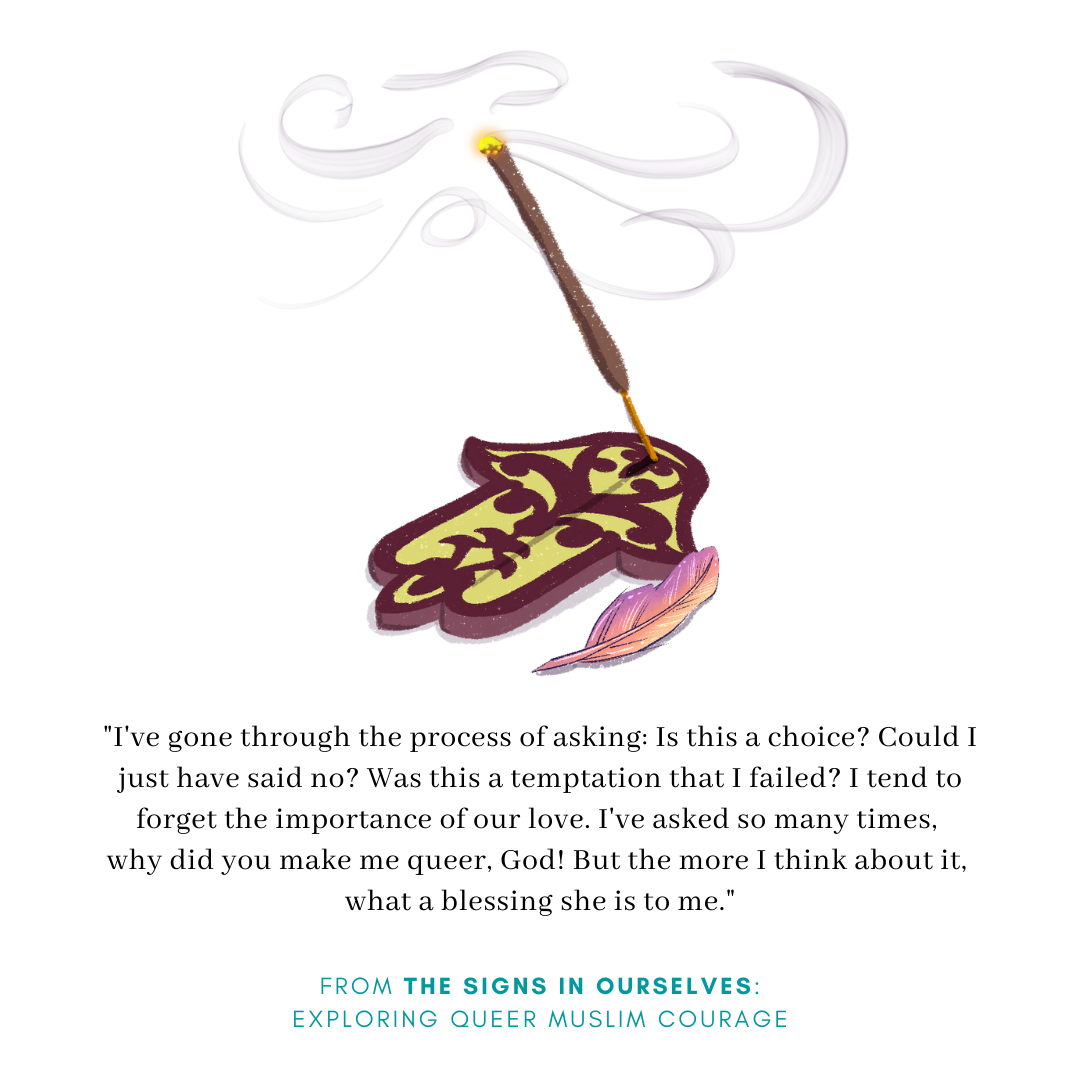

He recalls the women in his life whose friendships brought him closer to the Divine.
“A bit more than a decade ago, my soulmate, a Muslim woman of impeccable integrity, died of a terminal illness. We had a complicated relationship, but I was glad to be with her to the end, and helped to bury her. I was beside myself with grief and life was slowly unravelling. I had stopped praying by this point— this friend of mine was very disillusioned with Islam too, although she made peace with it before she died. But I had a longing to pray again, to seek God again, to be comforted in prayer. And just when I acknowledged this longing, I came into contact with this post-Salafi friend of mine, who nurtured me back into more regular prayer and practice, but without judging me for my sexuality. We read the Qur'an together, talked about God together, and became angels to each other. We are still close, even though we are separated geographically. When we were first getting close to each other, I said that I didn't have strong faith. That I was a bit agnostic and wasn't a very good Muslim. I don't really pray five times a day, and I still have an ambivalent relationship with the Qur'an and Hadith. But I told her, one day in Ramadan about 10 years ago, I was praying Subuh, and my heart was filled with such longing for Allah that I cried during my sujud. She cried too when I told her and said: You truly are spiritual, you know. And for the first time in a long time, I truly felt seen as a Muslim, as a servant of Allah.”
MORE STORIES
- "At one point I was an atheist. Then I became agnostic for quite some time. Only recently did I manage to reconcile my faith with my queerness, thanks to my last ex. She was religious, but not the conservative kind. She helped me feel comfortable talking to God again, in prayers and in daily routine." (bisexual, cis woman, she/her)
- "I was married to a man who didn't respect me or treat me well. I ended up seeing a woman that treated me so well, I wondered: How could it be bad if there was so much love? I read all that I could and realized that either way, Quran says nothing about lesbians, and in the end I would answer for why I lived the way I did. If Allah is love, I felt maybe the test was that I would reject something that Allah placed much good in. I was sent something in a way I didn't expect. And maybe the test was if I would trust or be scared of what others think." (41, Canada, she/her)
- "If an experience of Divine love was sent to me in a person, it would be my partner. He is instrumental in who I am today. He saved my life. I no longer believe in coincidences. I don't think things happen out of the blue. I think that things have been placed for me. Maybe it's a very self-centered way of looking at it, but I appreciate everything that happens, even the bad. I have faith that it paves the way for something else later. Sometimes I bump into friends at significant points in my life. All these moments are reminders as I enter a new phase or make an important decision. These experiences happen for a reason, and I always believe this is God's work." (25, masc gay, he/him)
- "My relationship with a man ended badly. But my relationships with women end wonderfully and we're still friends. I think that's Allah showing me that I'm compatible with women more than men. I’ve suspected this, but it's good to have more proof!" (27, Malaysia, she/her)
- "I fell in love when I was 20. The other girl had no idea, we were just acquaintances at that point. When I went to her campus, we didn’t talk much, but on the way back home she was all I could think about. She seemed almost like a prayer to me. I was a very devoted practising Muslim at the time— I prayed all 5 prayers, 3 of the nawafils, read Quran, ‘no music just naats’ level of religious. She was part of my thoughts for 3 months. I was happy being in love with her without her knowing, so I never told her and didn’t even pray for her to like me back. During Ramadan she threw me a surprise birthday party, and my friends told her I liked her. Guess what, she liked me back! It was so unexpected. At that point, I felt like God had given me this love. It felt like there was somebody out there looking out for me— not despite my queerness, but through it." (27, Pakistan, she/her)

A MORE PERPETUAL EXPERIENCE OF DIVINE LOVE
Instead of single major moments, his experience of Divine love is reflected by meetings and moments that seem to happen by coordinated design.
“There haven’t been any miracles or dreams for me. I learn a lot about God through people, through incidents. Every milestone I have has been because of an encounter with people. So I learn about God through everyone I meet. Ordinary people, some who others don’t even want to see or meet or know. Sometimes it’s a sequence of events that do not feel like coincidences.”
Raised in a conservative and traditional family, he was humbled into a big change while working on his degree. “I was sent to an Islamic boarding school to study religion and the Quran from very young. Then I was trained in law and theology. At 20 or 21, I had just written a criticism of amina wadud for leading mixed congregations. She had led congregational prayer for the second time, in the US. I was still conservative then.”
He spent every day outside of class attending mosque lectures. But one day, the ustaz teaching in that mosque fell ill and could not make it. With the free time suddenly on his hands, he decided to go to the library. “So I was there reading classical tafsir, and I stumbled into the distinguished interpreter al-Tabari mentioning a ruling on women leading prayer in congregation. He presented an Umm Waraqah hadith and all the viewpoints on the issue, but he criticised the opinion that it was haram. His view was that women could lead a congregation, although there were more details to that. That was when I realised there were other opinions about this issue and it was never black and white. Years later I actually told amina wadud about all of this, because it navigated me somewhere different. After I read that al-Tabari interpretation, I decided to read classical texts in the library more often, and only went to mosque lectures every other day instead of every day.”
These days, he is a practicing raqi, an Islamic spiritual healer, in a popular center run by the former spiritual advisor of a political party. “If things happen regarding the supernatural, such as possessions, I help heal it. It's fairly common for people in Southeast Asia to attempt to 'cure' gayness with Muslim spiritual rituals like these. A few lesbian couples even called me from Indonesia for support when they found out their family wanted to send them for religious healing. I know it to exist in Malaysia, Indonesia, and Singapore. A few families have taken their queer children in to the center I work at, claiming their children are possessed by djinn. I receive those cases, and tell them there's nothing wrong with their child. I think that is one of my contributions to the queer community! I am still in contact with some of those kids today.”

MORE STORIES
- "I really can't think of just one. Allah has been there for me in so many ways, has answered so many of my duaas. I remember one of the companions saying something to the effect of, 'If the skies were to part and I'd see Allah, that wouldn't make me more certain of His existence than I already am.' I truly believe that." (freelance writer, Egypt, she/her)
- "No specific experience comes to mind, but I like to think that God blessed me with impeccable gut feelings. It's like He's speaking to me through them. I used to ignore my gut feelings before— they felt somewhat ‘unsubstantiated’, but over time I realised that I can trust them, always, 100%. I'd like to think that that's God's way of telling me to beware, of watching out for me." (bisexual, cis woman, she/her)
- "In my life there have been quite a few negative experiences. But I've always come out of those learning something, and became a better person from them. One time I experienced temporary deafness just as I was contemplating a podcasting offer. It felt like God said: I can take this away from you at any time, so don't just approach this as a money-making gig or purely for fun. Make sure you use this for a good reason and tell stories that need to be told to benefit your community." (genderfluid, Singapore, he/him)
- "I experience Divine love every time I’m out in nature— on a mountain, at the beach, in a jungle— I feel much closer to God when I feel the wind, the water, and the world They made." (35, Malaysia, she/her)
Exercise no.5
from the workbook The Signs In Ourselves
Your Turn: Personal Reflection
Was there a moment or a memory where you felt, saw, or experienced God’s love for you in your own journey? Maybe it could’ve even been a person whose very existence in your life felt like a confirmation of a Divine Source and Their attention to you.
What changed after that experience?
Collective Discussion
Practice deep listening by exchanging your three-part story of Truth other queer Muslims fairly in pairs or groups.
This post is adapted from The Signs In Ourselves (pp. 46-56), a queer spiritual wellbeing workbook inspired by Qur'an verses 41:53, 51:20-21, and interviews with Southeast Asian Muslims. Written by Liy Yusof and illustrated by Dhiyanah Hassan, it was made available online in 2020 by the Coalition for Sexual & Bodily Rights in Muslim Societies. May Allahﷻ accept this offering and bring it to those who need it. Letters and inquiries: qmcourage [at] gmail [dot] com.
